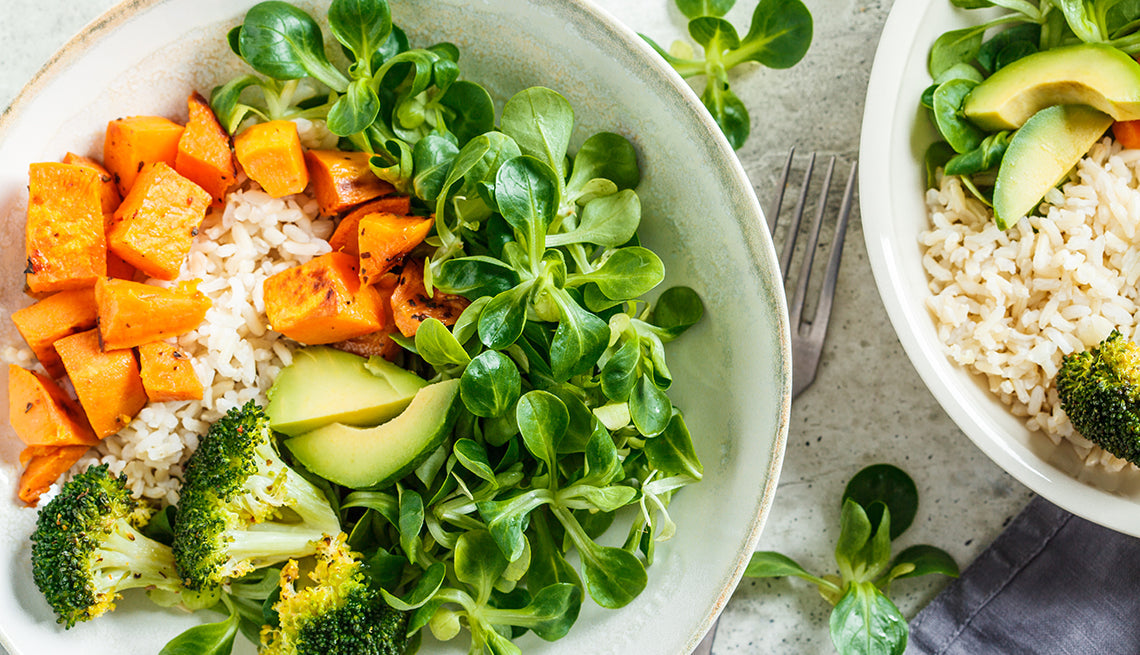
Foods to Soothe Stomach Ulcer Pain and Reduce Acid
|
|
Time to read 4 min
|
|
Time to read 4 min
If you've ever dealt with the burning discomfort of a stomach ulcer, knowing what you eat and drink can make all the difference. While food doesn't cause stomach ulcers, certain choices can aggravate the pain or help soothe your stomach lining and aid the healing process. This blog explains the science behind which foods can soothe stomach ulcer pain and reduce acid exposure.
Disclaimer: The information provided in this blog post is for general knowledge and informational purposes only, and does not constitute medical advice. Always consult with a qualified healthcare professional before making any decisions about your health or treatment. If you experience persistent or severe acid reflux, seek medical attention immediately.
A stomach ulcer (gastric ulcer) is an open sore in the stomach lining, most often caused by:
Helicobacter pylori infection
Long-term use of NSAIDs (ibuprofen, naproxen)
Less commonly, stress or other medical conditions
Stomach ulcers form when the balance between protective factors (mucus, bicarbonate, blood flow) and aggressive factors (acid, pepsin, H. pylori toxins) is disrupted.
Pain and burning occur when acid and digestive enzymes penetrate the damaged mucosa. This is why dietary choices matter for stomach ulcers: Certain foods can reinforce protective mechanisms, while others can worsen irritation.
The right diet for soothing stomach ulcers should:
Reduce direct irritation of the ulcer surface
Limit acid secretion or buffer existing acid
Enhance mucosal defense through nutrients and bioactive compounds
Support microbiome balance , especially after H. pylori treatment
In addition to taking the antibiotics and acid-blocking medications recommended by your doctor for your stomach ulcer treatment, eating these foods may be helpful to soothe stomach ulcer pain.
Soluble fiber forms a gel-like substance in the stomach that slows digestion and helps neutralize excess acid. This allows food to stay longer in the stomach without overstimulating acid production, alleviating stomach ulcer pain.
Examples include oats, barley, apples, pears, carrots, and sweet potatoes, which are generally well tolerated by those with stomach ulcers.
Fiber also supports a healthy gut microbiome, strengthening the stomach’s protective lining.
Probiotics restore balance to gut bacteria, particularly after H. pylori treatment.
Good sources are yogurt with live cultures, kefir, miso, mild kimchi, and low-sodium sauerkraut.
Certain strains, such as Lactobacillus and Bifidobacterium, produce antimicrobial substances that help suppress H. pylori and reduce stomach inflammation.
Regular consumption supports healing and improves digestive comfort.
Note: When choosing probiotic foods or supplements, look for scientifically verified strains. It’s also advisable to consult a healthcare professional before starting any probiotic regimen to ensure safety and effectiveness.
Bananas and plantains are gentle and naturally low in acid, making them suitable for stomach ulcer sufferers.
They contain flavonoids that stimulate protective mucus production in the stomach lining, forming a barrier against acid and digestive enzymes.
Their soft texture and mild flavor make them soothing and easy-to-digest snack or breakfast options.
Not sure what foods are best tolerated by your gut? Take You can take Claisen’s free quiz for personalized insights into your gut health and get tailored advice on what supports your digestion.
Protein supports tissue repair and healing. Choose lean options such as skinless poultry, fish, tofu, and eggs to avoid high-fat content.
Fatty meals can delay stomach emptying and increase acid exposure, so lean proteins are easier to digest and less likely to cause discomfort.
Including moderate portions at each meal helps maintain strength and supports recovery.
Manuka honey offers natural antimicrobial effects, particularly against H. pylori.
Its thick texture coats and soothes the stomach lining.
It contains antioxidants that protect gastric cells from damage.
Small amounts (e.g., a teaspoon in warm water or drizzled over yogurt) can be a helpful natural complement to medical treatment for stomach ulcer.
Herbal teas like chamomile, deglycyrrhizinated licorice root, and slippery elm calm the stomach lining by forming a protective film over mucous membranes, soothing pain caused by stomach ulcers.
These teas are caffeine-free, which is beneficial because caffeine can increase acid production.
Drinking them warm, not hot, helps minimize irritation and provides relief between meals.
To prevent aggravating stomach ulcer symptoms, it’s best to reduce or avoid:
Spicy foods
Citrus fruits and tomato-based products
Coffee and caffeine
Alcohol
Fried and fatty foods
Carbonated drinks
These can increase acid production, delay gastric emptying, or directly irritate the stomach lining.
Ulcer-friendly diets focus on acid buffering and mucosal protection.
Soluble fiber, probiotics, bananas, lean protein, leafy greens, honey, and herbal teas can all support stomach ulcer healing.
Avoid acidic, spicy, caffeinated, and high-fat foods to minimize discomfort.
Diet supports, but does not replace, medical treatment for stomach ulcers.
Ready for personalized relief for stomach ulcer and acid reflux? Complete Claisen's gut health quiz to identify your unique triggers and receive evidence-based recommendations tailored to your digestive profile.
No. Medical treatment is essential, but diet can significantly improve comfort and reduce recurrence risk.
You can try beverages that contain probiotics, such as kombucha. In addition, research has found that drinking cranberry juice may help fight an H. pylori infection.
It’s best to avoid coffee, as caffeine can stimulate acid production and cause irritation.


